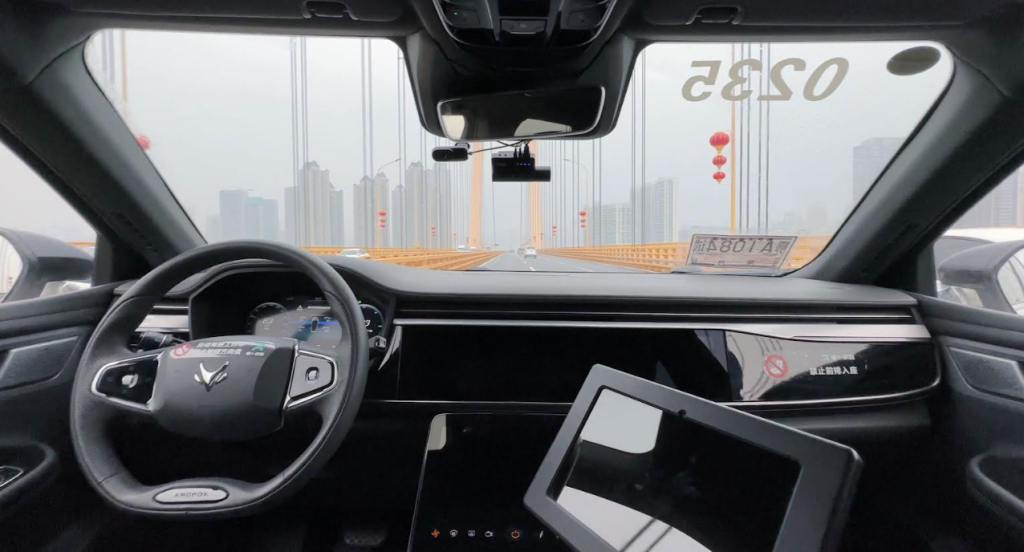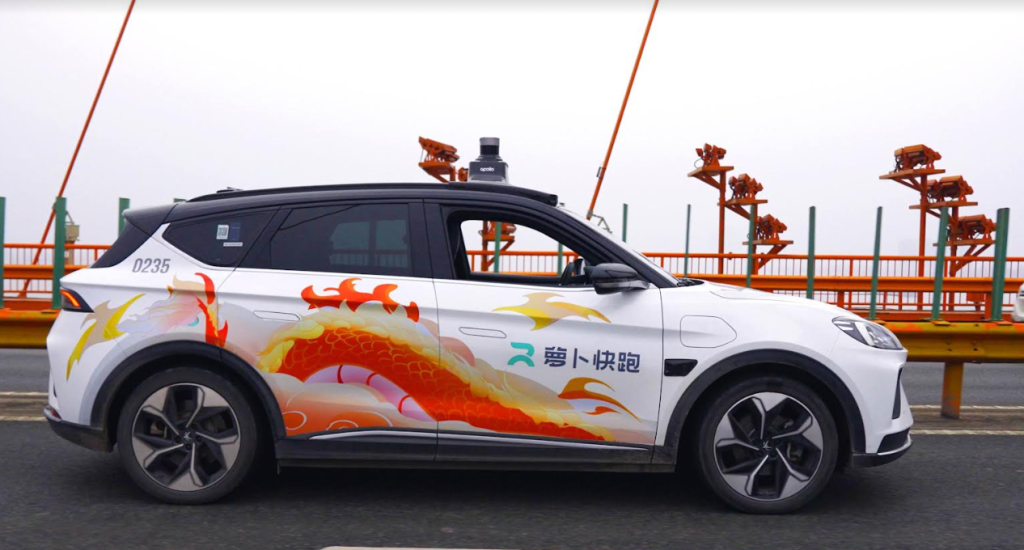On February 27th, Baidu, a leading Chinese technology company, announced a groundbreaking achievement in the field of autonomous driving. Baidu’s autonomous ride-hailing service, Apollo Go, has become the first in China to offer fully driverless rides across the Yangtze River. This monumental feat not only highlights Baidu’s capabilities in autonomous technology but also signifies a significant expansion of its operational reach.

The service, now operational in the city of Wuhan, boasts an impressive fleet that effortlessly navigates the complex landscape presented by the 11 bridges connecting the north and south banks of the Yangtze River. The Yangsigang Yangtze River Bridge and Wuhan Baishazhou Bridge serve as demonstrations of Apollo Go’s technological excellence, seamlessly connecting Wuhan’s northern and southern areas and improving accessibility for its 14 million inhabitants.
This milestone comes on the heels of Baidu’s robust financial performance, as revealed in its latest quarterly report. In the fourth quarter, approximately 45% of Apollo Go’s orders in Wuhan were fulfilled by fully autonomous vehicles, a figure that surpassed the 50% mark in January. Moreover, Apollo Go provided 839,000 rides in the last quarter alone, marking a substantial 49% increase year-over-year, with total rides exceeding 5 million by early January.

Looking ahead to 2024, Baidu maintains its strategic focus on achieving operational breakeven for Apollo Go, with plans to replicate its successful operations in Wuhan across other regions.
Baidu’s journey in autonomous driving began in 2013, and over the past decade, the company has dedicated significant resources to research and development, prioritizing technological innovation for long-term success. To date, Baidu Apollo’s advanced autonomous driving systems have completed over 90 million kilometers of testing, positioning the company as a global leader in high-level autonomous driving patents, boasting an impressive portfolio of over 5000 patents.








